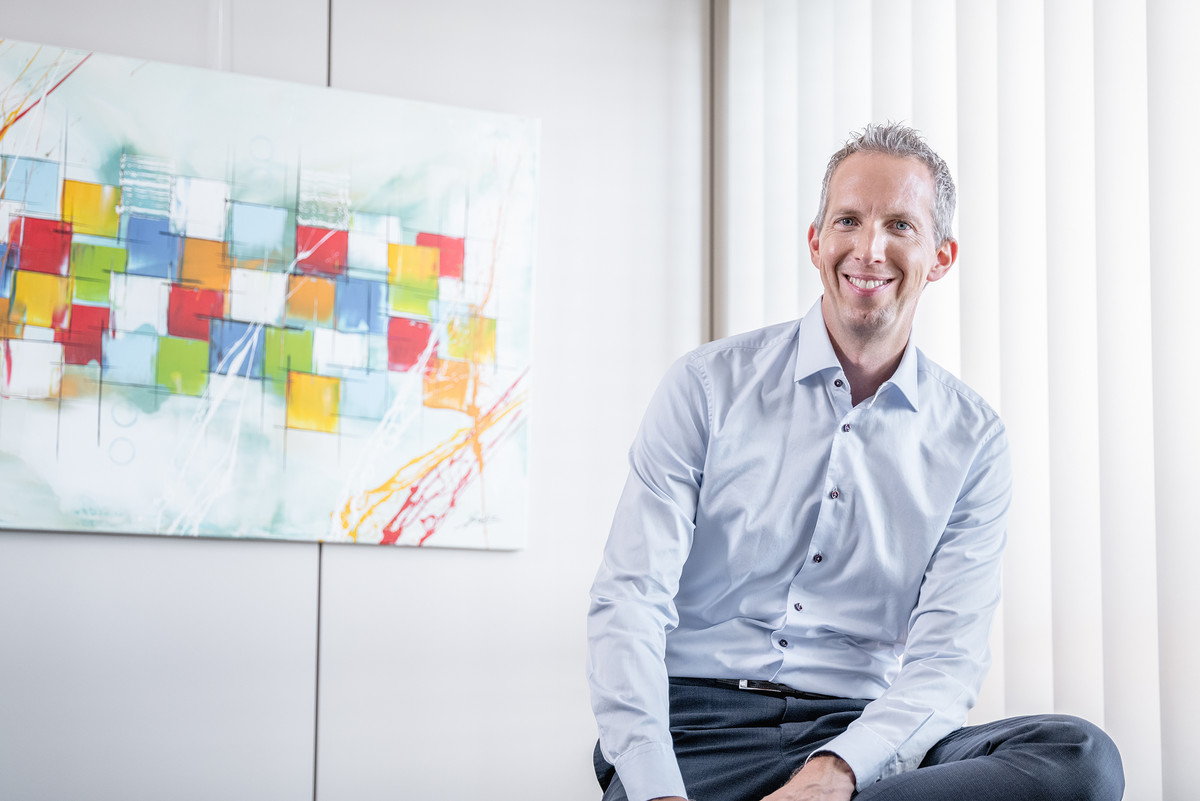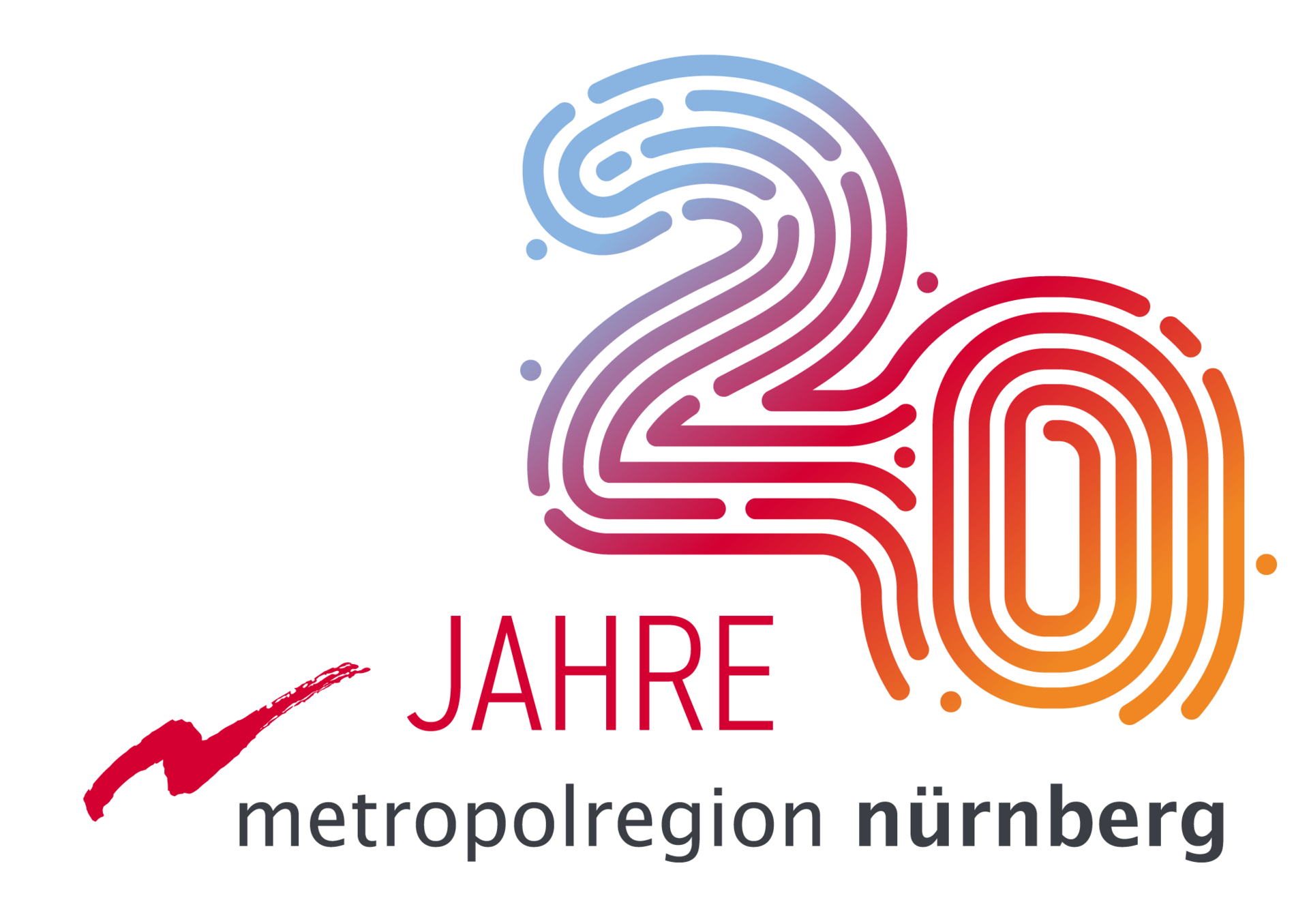"We need a culture of innovation on many levels"
Between sustainability, skills shortages and AI: Rainer Brehm, CEO of the Factory Automation Division at Siemens, sees the future of the Nuremberg Metropolitan Region as a think tank for sustainable solutions.
We need a culture of innovation on many levels
Between sustainability, shortage of skilled workers and AI: Rainer Brehm, CEO of the factory automation division at Siemens and member of the "Innovationskunst" initiator group talks about the importance of innovations for the Nuremberg Metropolitan Region.
Inventiveness has a long tradition in the region. I'm thinking of the first train ride of the Adler from Nuremberg to Fürth in 1835. But innovations are also viewed critically. At the time, there were also concerns about whether passengers would be able to survive the 30 km/h speed limit in good health. Today, digitization gives rise to fears that people will become redundant. How do you respond to this criticism?
Innovations are unusual at first glance and there are always reservations about new things. That was the case with the first railroad earlier, and there is no difference today with topics such as digitalization and artificial intelligence. Humans will not become redundant in production, but their role will change. There are jobs that a robot can do better, for example in quality control or sorting different components during recycling. Work that requires human creativity or imagination, for example, will remain in human hands. What we need is the willingness to embrace transformation and the new. It takes courage to get on the first train and be a pioneer. We need this pioneering spirit more than ever in today's world.
Siemens celebrates its 175th anniversary this year. What is the recipe for success and what is the price?
Werner von Siemens was an inventor. Inventions were and are the basis for our success and they run like a red thread through the history of the company – from the pointer telegraph to the Digital Twin, so to speak. History shows that industry is subject to constant change and the stronger the change, the more important it is to transform and lead the way with innovations. We are addressing this with creative solutions, teams that work like start-ups and a new learning culture where employees can constantly develop their skills.
Can you buy creativity – like a soccer star for the team? What do you, what does Siemens do to promote inventiveness in the company?
I recently heard a talk by author Diana Kander. She says creativity is a muscle you can exercise. And I really like that image. We're born with creativity, and as adults we just need to bring it out and exercise it. To do that, we brought people into the team who have studied creativity, who have researched how creativity works, and who are now going on a creative journey with the departments: what does creativity mean to me, how can I be creative in the team, and what methods are suitable for developing innovative ideas.
Does that mean that tomorrow's innovations will not come from an AI?
To rule that out completely would contradict the pioneering spirit. But seriously, AI works with patterns. In production, we use AI in quality control, for example. If a workpiece conforms to a certain pattern, then the quality is fine. Innovations, on the other hand, are often characterized by leaving familiar paths behind and testing out new things. Here, I still think human creativity is the better tool.
Disruptive changes don't suit most people all that well. How do you prepare your workforce for topics like Industry 4.0? How do you engage people?
For a long time, we thought in terms of processes and limited ourselves to further developing familiar products. But rigid processes are not enough to keep pace with disruptive changes. If Henry Ford had only focused on the production of carriages, he probably wouldn't have invented the assembly line. It takes a vision and the openness to question existing thought patterns. To bring people along, these points are important: I need to know why I get up in the morning. I need to feel what the purpose of my work is. That is what motivates people. And it's more important than ever to be aware of individual goals and strengths. Am I an innovator and pioneer for new things or am I an expert in a known field. Both are valuable, both strengths are needed.
Sustainability is a hot topic: Industrial companies in particular are suspected of consuming large amounts of energy and resources. How sustainable can industry be?
We have set ourselves the goal of being climate-neutral by 2030, and that is why which is why we don't want to waste resources. To achieve greater sustainability, we develop solutions in and for our own factories. As a result, our plants are always also think tanks for the entire industry. This enables us to be a pioneer in the area of sustainability and energy efficiency, and we pass on proven solutions to our customers.
Siemens is a founding member of the "Innovationskunst" initiative of the Nuremberg Metropolitan Region. What does the initiative mean to you and what do you see as the added value for Siemens?
Innovationkunst is an expression of our ecosystem of universities, colleges, scientific institutions and, of course, companies like us. Many people are not aware that we have 21 universities here and are also one of the leading regions in Europe when it comes to patent applications. I appreciate the close cooperation with other technology enthusiasts and the impetus for creative ideas and innovative technology. The initiative communicates this to the outside world and helps attract more experts and specialists to the metropolitan region.
How do you perceive the culture of innovation in the Nuremberg Metropolitan Region? Is there still potential for optimization?
We need a culture of innovation on many levels. In some places we are already on the right track, for example in collaborations with universities. At our digital showcase site in Amberg, students from OTH Amberg/Weiden can try out new technologies and solutions in a future lab. But there is definitely more potential to attract talents and workers to the region. Within the Innovationskunst initiative, we need to become even more international in order to attract experts abroad as well.
Keyword “shortage of skilled workers”: Where do you see a need for action? What can an initiative do, or what can companies do?
Many companies will be confronted with the issue of a shortage of skilled workers in the future because the age structure in our society is changing. Companies should now invest in the further education of their employees – something that we’ve been doing for quite some time already. Initiatives such as Innovationskunst form a network of companies and educational institutions and show what attractive courses of study are offered at universities. But we definitely need to do even more to promote the metropolitan region.
If you were to draw a picture of the Nuremberg Metropolitan Region in 2050 – what do you see?
I see the region as a think tank for sustainable solutions. It provides important impulses for sustainable mobility, medical technology, agriculture, and production. I would like to see even closer cooperation with science and research, and also an environment that offers an attractive work-life balance.
What is important to you?
I enjoy learning something new every day and testing out ideas. It's not so important whether an idea is immediately successful the first time it's tried out. The important thing is to stay curious, to keep going and to learn from failure.




